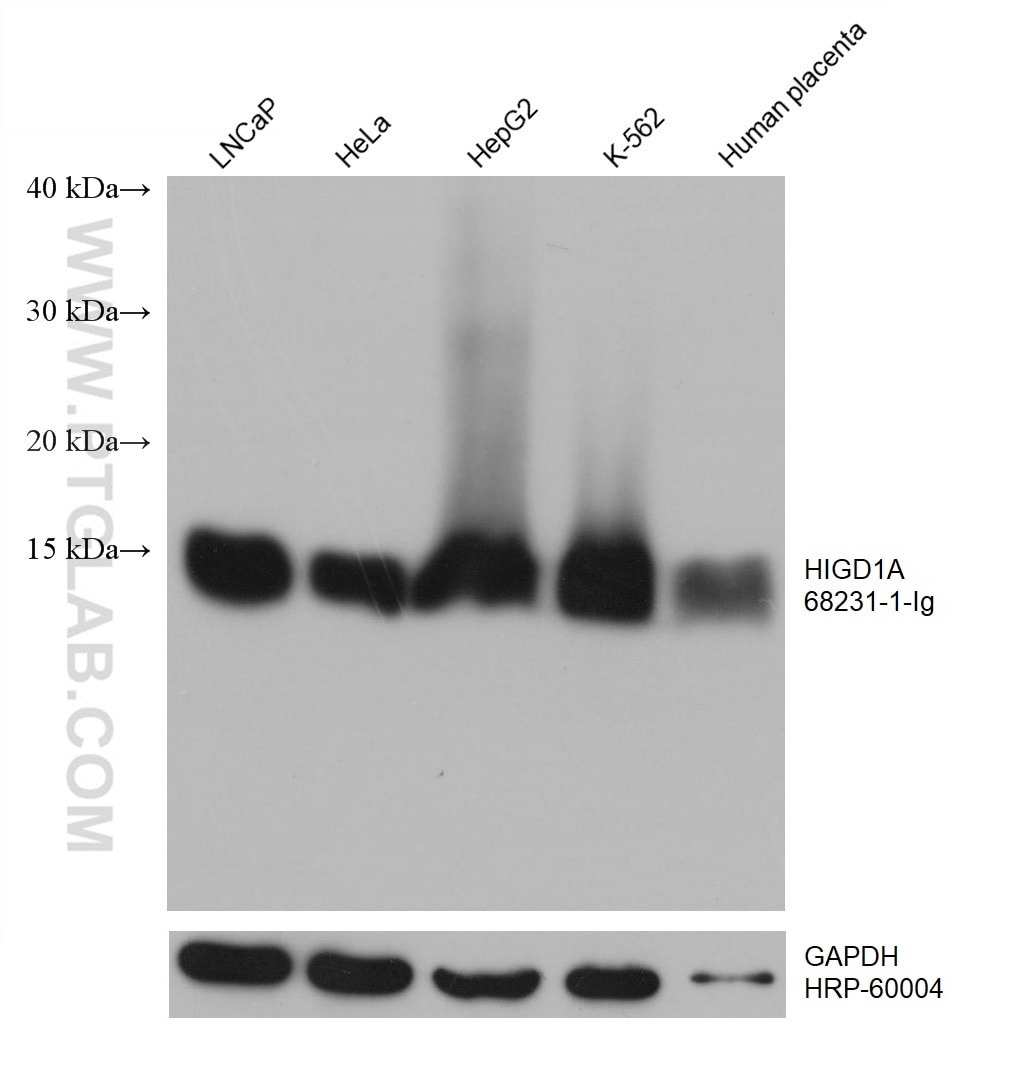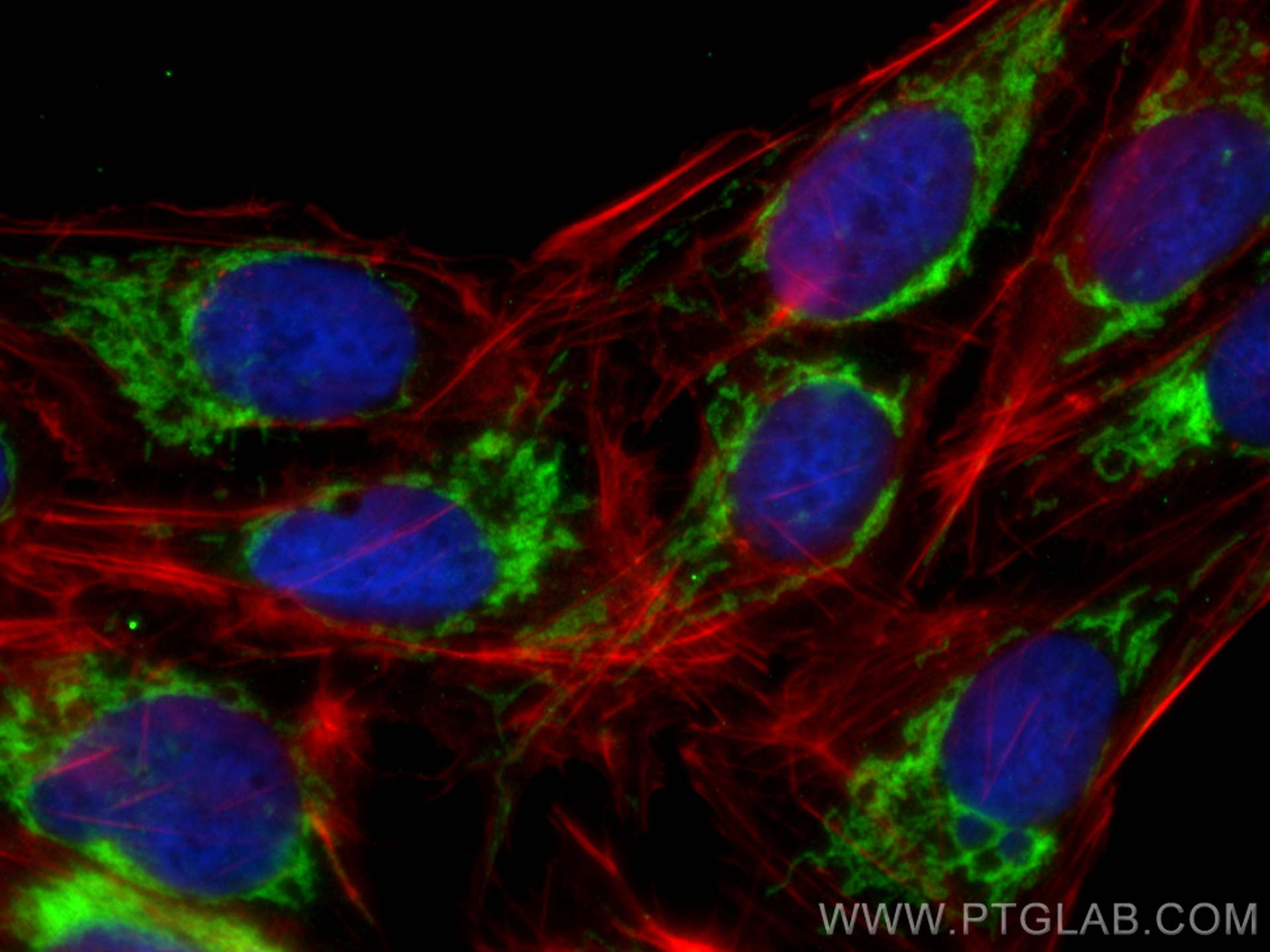Tested Applications
| Positive WB detected in | LNCaP cells, HeLa cells, HepG2 cells, K-562 cells, human placenta tissue |
| Positive IF/ICC detected in | U2OS cells |
Recommended dilution
| Application | Dilution |
|---|---|
| Western Blot (WB) | WB : 1:1000-1:6000 |
| Immunofluorescence (IF)/ICC | IF/ICC : 1:200-1:800 |
| It is recommended that this reagent should be titrated in each testing system to obtain optimal results. | |
| Sample-dependent, Check data in validation data gallery. | |
Product Information
68231-1-Ig targets HIGD1A in WB, IF/ICC, ELISA applications and shows reactivity with Human samples.
| Tested Reactivity | Human |
| Host / Isotype | Mouse / IgG2b |
| Class | Monoclonal |
| Type | Antibody |
| Immunogen | HIGD1A fusion protein Ag14027 Predict reactive species |
| Full Name | HIG1 hypoxia inducible domain family, member 1A |
| Calculated Molecular Weight | 93 aa, 10 kDa |
| Observed Molecular Weight | 10 kDa |
| GenBank Accession Number | BC000601 |
| Gene Symbol | HIGD1A |
| Gene ID (NCBI) | 25994 |
| RRID | AB_2935318 |
| Conjugate | Unconjugated |
| Form | Liquid |
| Purification Method | Protein A purification |
| UNIPROT ID | Q9Y241 |
| Storage Buffer | PBS with 0.02% sodium azide and 50% glycerol pH 7.3. |
| Storage Conditions | Store at -20°C. Stable for one year after shipment. Aliquoting is unnecessary for -20oC storage. 20ul sizes contain 0.1% BSA. |
Background Information
HIG1 domain family member 1A (HIGD1A) is a proposed subunit of cytochrome c oxidase (COX, complex IV), which is the terminal component of the mitochondrial respiratory chain that catalyzes the reduction of oxygen to water. May play a role in the assembly of respiratory supercomplexes (PMID:22342701). It is induced by hypoxia induction.
Protocols
| Product Specific Protocols | |
|---|---|
| WB protocol for HIGD1A antibody 68231-1-Ig | Download protocol |
| IF protocol for HIGD1A antibody 68231-1-Ig | Download protocol |
| Standard Protocols | |
|---|---|
| Click here to view our Standard Protocols |





